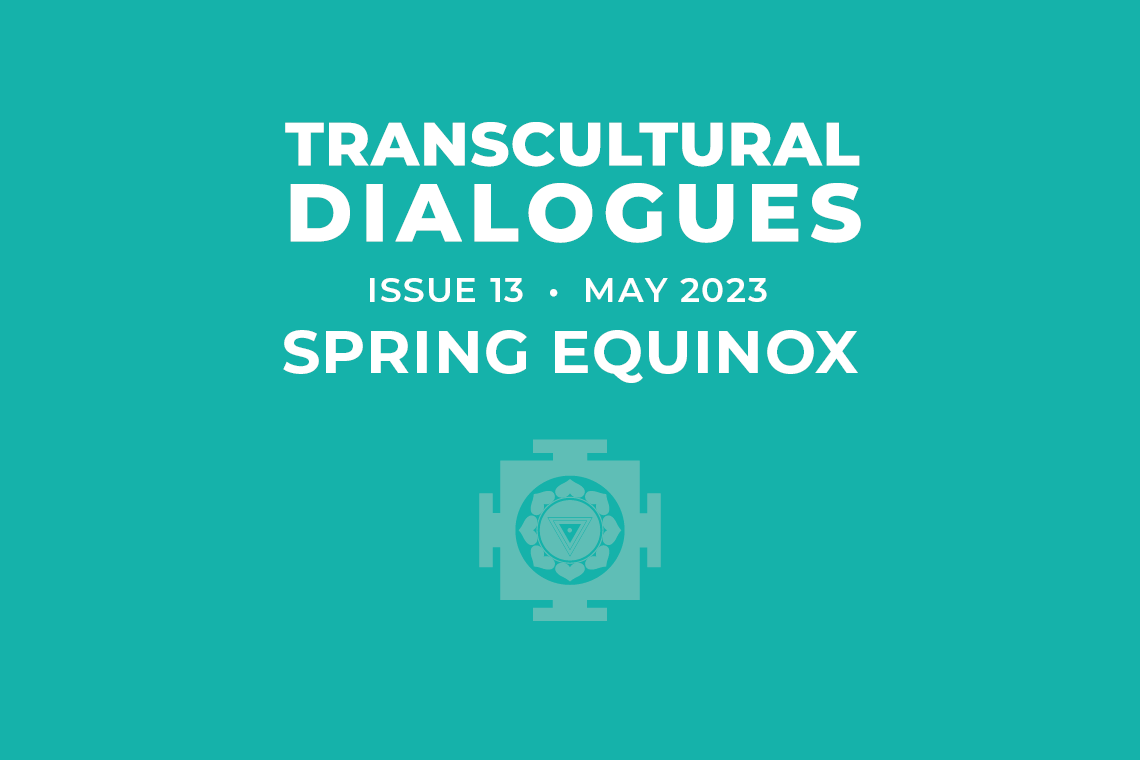
Index:
- » Adrián Navigante,
Director FAD Research and Intellectual Dialogue
TRANSVERSALITY: QUESTIONS OF METHOD
In this essay, Adrián Navigante reflects on a method that has been a guiding thLire la suite in the activities of the domain of Research and Intellectual Dialogue: transversality. This method appears as a possible reorientation in thinking and experience in the face of the state of knowledge, the cultural crisis, and the global challenges of the XXI century. Its potential and risks are related with the inevitable task of transforming our attitude to the world, as Alain Daniélou declared in his book Shiva and Dionysus, not only on the level of representation but mainly as a reeducation of perception, sensitivity, and relation.
Lire la suite » - » Interview with Celso Cintra,
Composer, musician, musicologist, and professor at the University of Uberlândia, Brazil.
ALAIN DANIÉLOU’S MUSICOLOGICAL WORK
From 24 to 25 March of this year, Celso Cintra held a workshop at the Labyrinth on Alain Daniélou’s musical dialogue, in which he dealt systematically with Daniélou’s musicological project – including his critique of Western music, the philosophical background of Indian classical music, and the influence of musical intervals on human emotions. This interview intends to highlight some instances of the dialog with Celso Cintra during the workshop as well as some relevant aspects of Daniélou’s musicological work: the question of equal temperament and just intonation, the difference between harmonic and modal music, Daniélou’s verdict on the ‘arbitrariness’ of Western music, as well as some shortcomings in his own theory.
Lire la suite » - » Wouter Hanegraaff,
Professor of History of Hermetic Philosophy and Related Currents at the University of Amsterdam, Netherlands.
CLOSE ENCOUNTERS WITH THE THIRD KIND: A HERMETIC THEORY OF IMAGINAL CONSCIOUSNESS
In this essay, Wouter Hanegraaff analyzes a neglected theory of consciousness and the imagination central to Hermetic literature. Corpus Hermeticum XI, in particular, describes a radical state of consciousness expansion referred to as the Aiōn, in which the human mind is said to participate completely and consciously in the “incorporeal imagination” of the universal divine mind or Nous. By going back to the original terminology and its intellectual context in late antiquity, Wouter Hanegraaff brings to light a theory of consciousness that has been forgotten and misunderstood, but may prove highly relevant to current discussions in philosophy and cognitive research.
Lire la suite » - » Jean-Jacques Wunenburger,
Professor Emeritus of Philosophy at the University Jean Moulin Lyon3, Director of the International Research Centre on the Imaginary (CRI2i)
THE MULTI-CULTURAL: BETWEEN THE ONE AND THE MANY
Contemporary debates in sociology, history and politics tend to highlight the opposition between unifying globalisationand identitary resistance among peoples and cultures. In this essay, Jean- Jacques Wunenburger discloses other processes – much deeper, subtler and more complex – which can be reduced neither to identitarian affirmation (on the basis of the expression ‘shock of civilisations’) nor to a fusion of the cultural model with the dominant power. He inquires into the epistemological and anthropological conditions of a model capable of bringing together ‘the same’ and ‘the other’, the ‘universal’ and the ‘difference’ in a harmonious way.
Lire la suite »
Partager cette page

